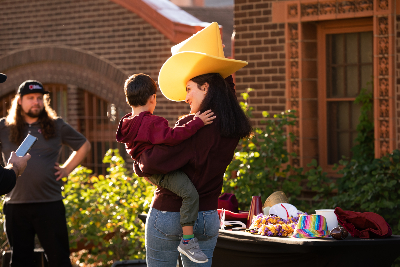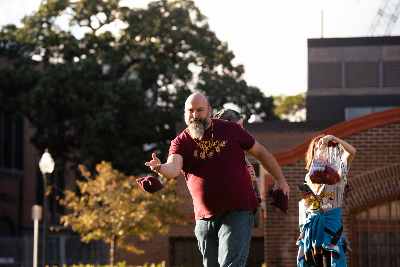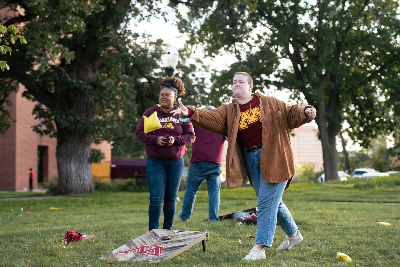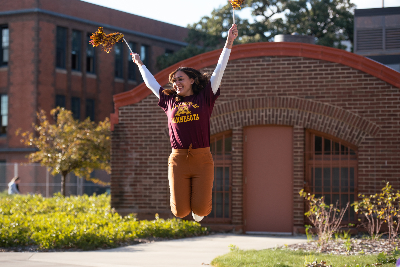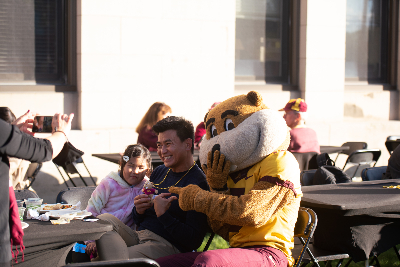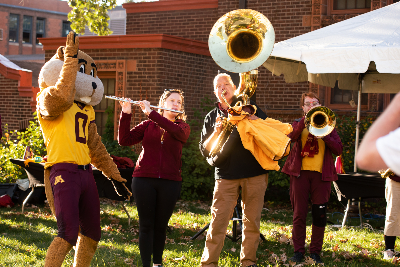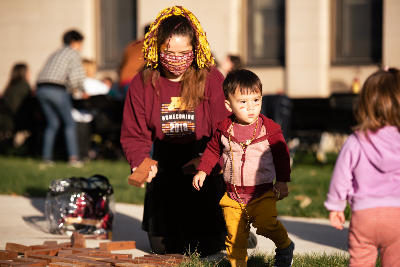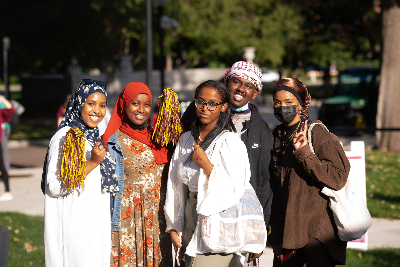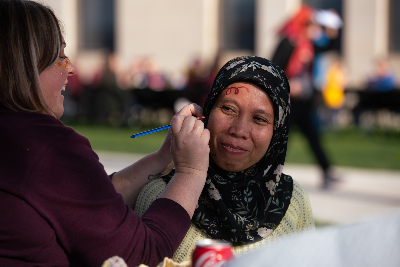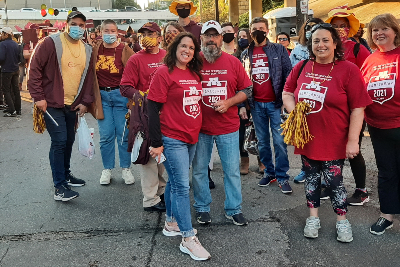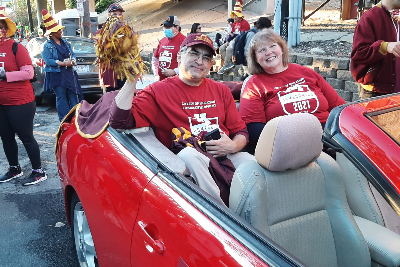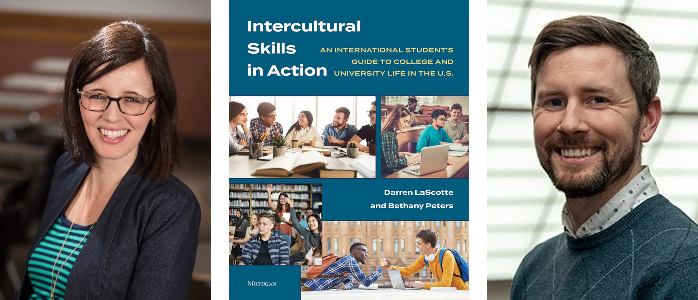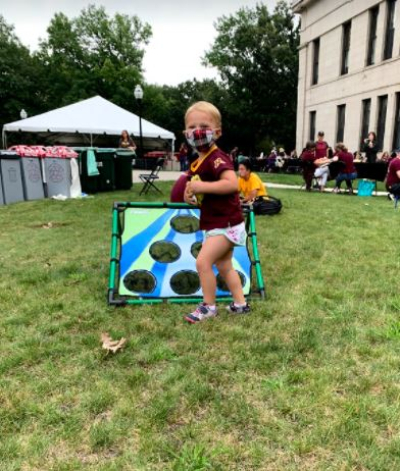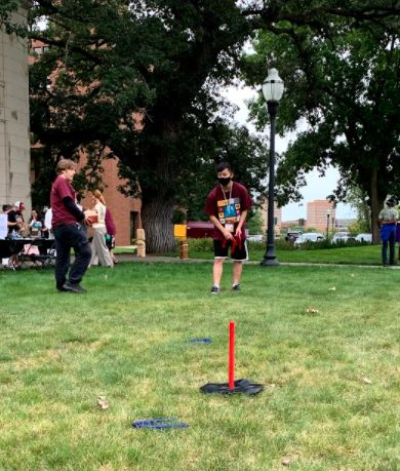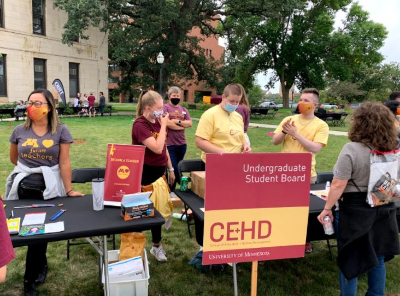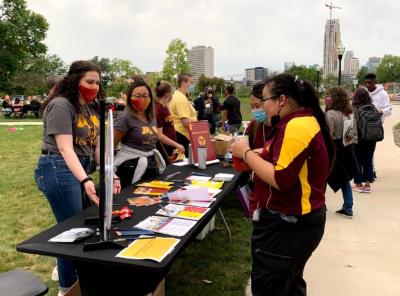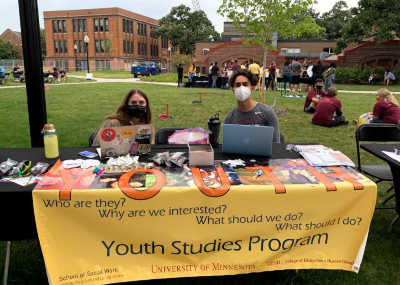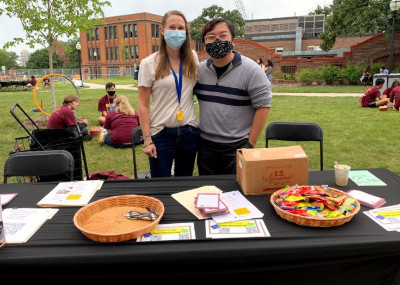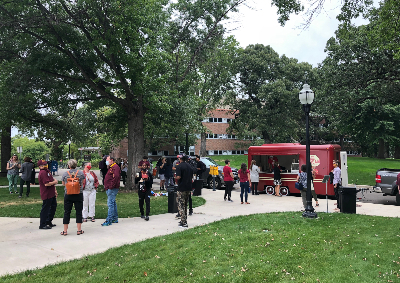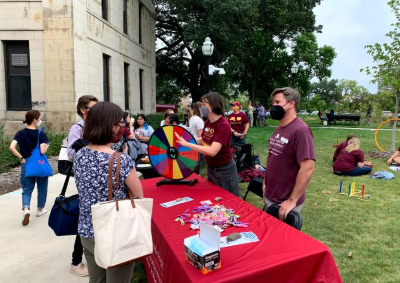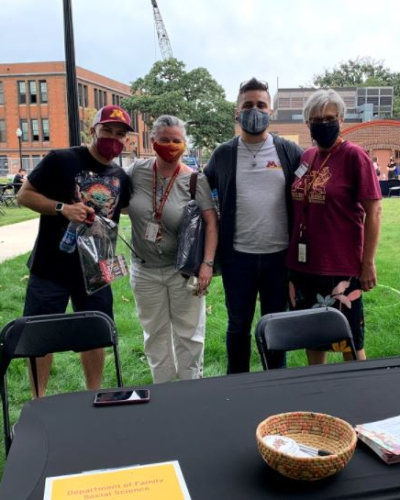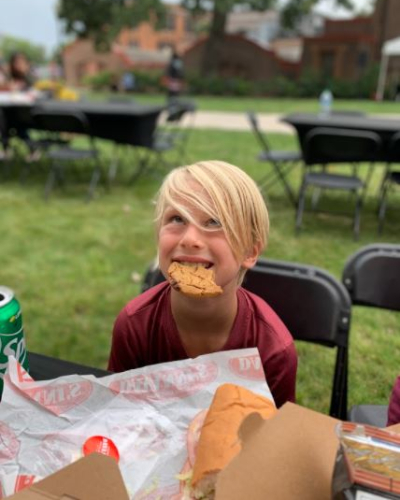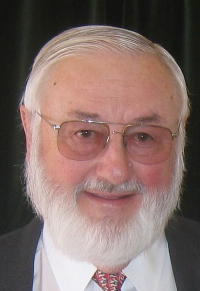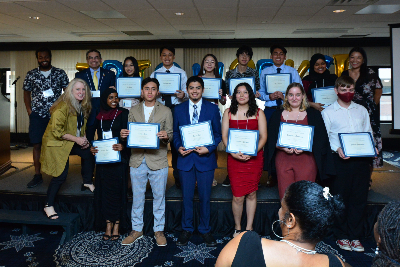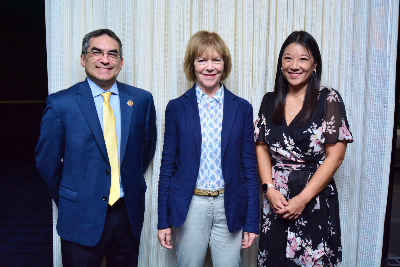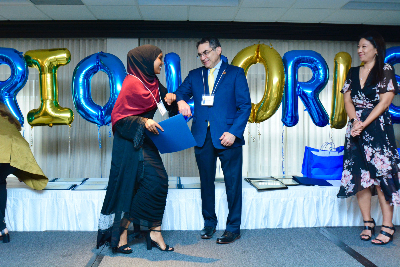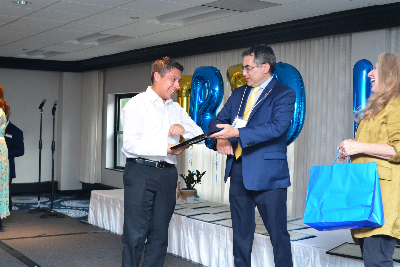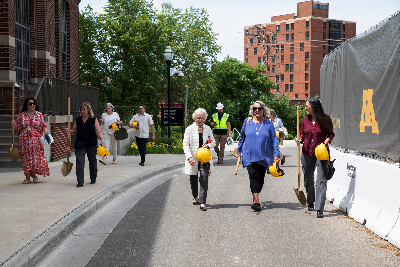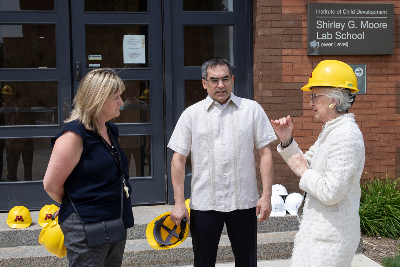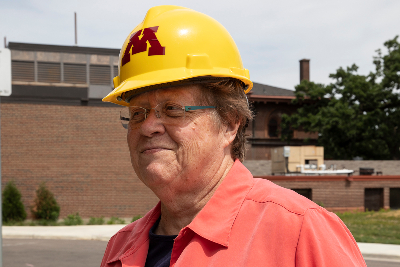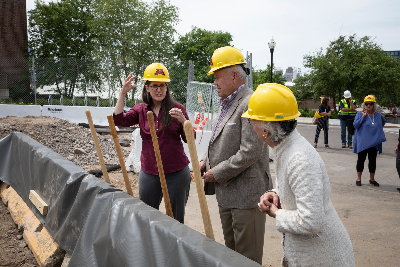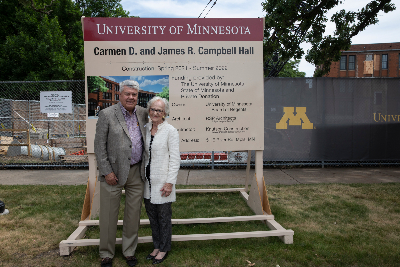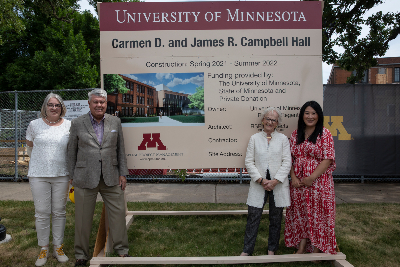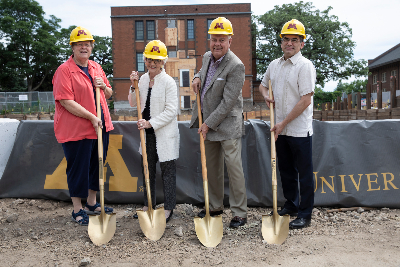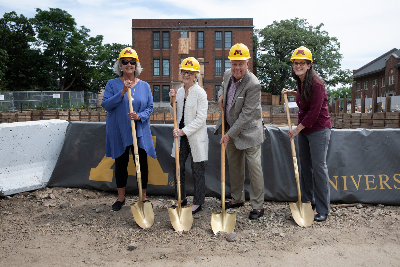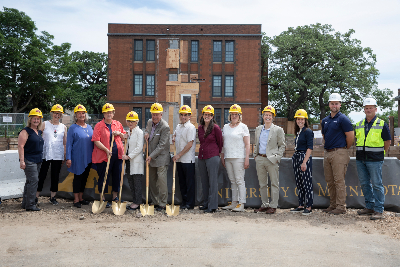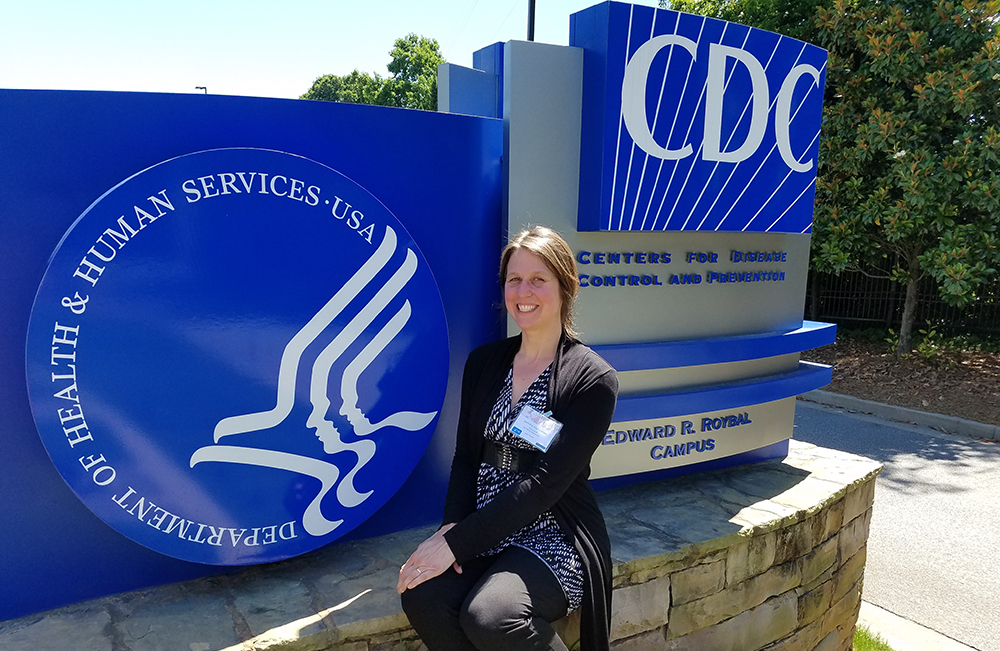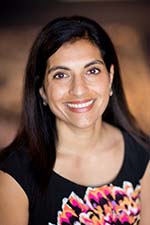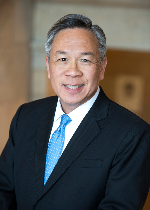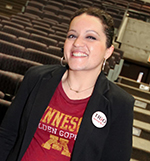At the 2021 Spring Assembly, CEHD saluted those faculty and staff members who are leaving us. We thank them for their service and wish them well in the next chapter of their lives.
Melissa Anderson, Professor of Higher Education, served in the Department of Organizational Leadership, Policy, and Development and was a former Associate Dean of the Graduate School. She was with the U for 36 years. She is a Fellow of the American Association for the Advancement of Science and chaired the AAAS Committee on Scientific Freedom and Responsibility. Her research has been in the areas of research integrity and international collaborations. Anderson was a member of the research team that first derived estimates of the prevalence of scientific misconduct. She served as co-chair of the World Conferences on Research Integrity and later as a member of the Executive Board of the World Conferences on Research Integrity Foundation among many other roles.
Carole Anne Broad was a Senior Academic Advisor and adjunct faculty member during her 19 years at the University. Carole Anne was part of a team that helped envision and create the Center for Academic Planning and Exploration (CAPE). She was also the co-creator, coordinator, and instructor for CSPH 3211, Living on Purpose: An Exploration of Self, Purpose, and Community. Since retiring in January, Carole Anne has been volunteering in the CSPH 3211 class and plans to teach again in the 2021-22 school year. She remains active in her racial justice work and wellness practices in her Minneapolis community.
Ernest Davenport retired at the end December as an Associate Professor in the Department of Educational Psychology. During his 35 years in CEHD, he studied the relationship between various student experiences and academic success. As a proud alumni of Alphi Phi Alpha Fraternity, he partnered with the Twin Cities chapter to found the ACT/SAT Prep program in 1991 to help at-risk students improve their college admission test scores and prepare for higher education. In 2014 The Department of Psychology and Neuroscience at the University of North Carolina established an award in his honor: the Ernest Davenport Award for Outstanding Psychological Research by a Student who Enhances Diversity.
Miriam DeRoode served as the School of Kinesiology’s Purchasing Specialist, enjoying each and every opportunity to support faculty, staff, and students. Miriam treated her team members like family and, because of that, her Zoom farewell was one of the most well attended events of the year. With 20-plus years of University experience, Miriam modeled continuous improvement. She worked diligently to improve work flow and processes, always demonstrating a dedicated effort. Miriam’s strong vendor relationships ensured that kinesiology received the right products and services on time and often at a lower cost than anticipated. Miriam was an excellent steward of the University’s financial resources.
Deborah Dillon joined the U of M faculty in July 2001 as chair of the Department of Curriculum and Instruction. In 2005, she returned to the faculty and in 2007 was named the Guy Bond Endowed Chair in Reading. In 2013, Deborah began her service as Associate Dean for Graduate and Professional Programs. Over the eight years she served in this position, she has helped to create and enhance programs and experiences for graduate and professional students. She also worked with community members and teacher education colleagues to design new pathways into the teaching profession—particularly focused on reducing financial barriers to earning a license and increasing the number of BIPOC teachers in Minnesota.
Beth Fondell joined the Institute on Community Integration (ICI) in 2009. She retired in January to provide care to her mother. Beth is a fierce and persistent advocate for inclusion. As a gifted community connecter whose kindness and sincerity brings people together, she was immensely effective in leading ICI’s Community Advisory Council, building strong partnerships with a diverse group of disability leaders. Beth served as the Outreach and Training Coordinator, where she managed the Disability Policies and Services Certificate program. She also managed Minnesota LEND—an interdisciplinary leadership program spanning more than 16 disciplines across the U.
Jane Gilgun arrived at the School of Social Work as an assistant professor in 1984. This past year, Jane moved to the east coast for the final year of a phased retirement. Jane had a long-term life history project on the development of violent behaviors, the meanings of violence to perpetrators, and how persons cope with adversities. Jane led 23 other research projects, primarily in collaboration with service providers at local and regional social service agencies. Through the International Congress of Qualitative Inquiry, Jane took national and global leadership in the development of social work qualitative research methods within the pragmatist tradition.
Michael Harwell will retire as a Professor in the Department of Educational Psychology Quantitative Methods of Education in May after 20 years. His research focused on methodological issues in educational data analysis, including missing data and research design, developing meta-analytic effect sizes and tests, and studying the role and impact of theoretical models of social class on measuring socioeconomic status in educational research. Harwell has served as associate editor for Psychological Methods as well as for Educational Researcher. His distinguished work in teaching and service has earned him honors such as the University of Minnesota Council of Graduate Students Outstanding Faculty Award and the American Educational Research Association Educational Statisticians’ Distinguished Service Award.
Delia Kundin retired after 12 years at the University. Delia’s most recent role at CAREI was Associate Director of Evaluation where she oversaw program evaluation projects ranging from external sales to sponsored projects, supervised program evaluation staff, contributed to the leadership and expansion at CAREI, and continued to be the principal investigator on projects. She is a natural teacher and mentor to staff around evaluation and measurement, the queen of details, always the calm person during stressful times, and a natural problem-solver. Her presence continues to be missed and probably will for a long time to come.
Elizabeth Lightfoot, Distinguished Global Professor, worked for the University for 23 years. She directed the PhD Program for 15 years and served as the academic advisor for 27 PhD students and taught hundreds of MSW students. She conducted many research projects and has published more than 125 articles, chapters, and monographs. She completed two year-long Fulbright scholarships in Romania and Namibia. She has held national leadership positions in the three main social work academic organizations, including serving as President of the Group for the Advancement of Doctoral Education. Recently, she was inducted into the American Academy for Social Work and Social Welfare.
Susan Madden was the Lead Abstractor on the Centers for Disease Control and Prevention-funded Minnesota-Autism and Developmental Disabilities Monitoring Network (MN-ADDM) project, which works to find the prevalence of autism in children in Minnesota. Through her leadership, the team successfully collected three waves of data, which contributed to both state and national autism prevalence estimates. Susan was a highly valued colleague who was with the University for over nine years. Susan is currently spending her time on several creative endeavors.
Jo Matson served in the Office of Teacher Education in several roles over the last decade. More recently as the Accountability Analyst and Assistant Director. Jo was an employee at the U for over 30 years, starting in 1987. She contributed to the very successful accreditation work in the college for teacher education programs across the University. Though retired, Jo is a dedicated adult basic education and TOESL teacher. She continues to work part-time supporting TOESL and adult students online and in classrooms.
Pam Matti served in many student service roles in CEHD over her career, beginning in 1985. For the last seven years at the University, she served as Additional and Speciality Licensure Advisor for all teacher licensure programs across campus. In this role, she provided support for students seeking to add a second or speciality licensure area to their existing teacher licensure. Pam is enjoying retirement with her family and looking forward to traveling to warmer places.
David O’Brien received his PhD at the University of Georgia in 1984. He worked as a researcher/teacher in multiple K-12 school settings, including at a literacy lab in Lafayette, Indiana, while also on the faculty of Purdue University. At Purdue, he enjoyed a 17-year career as assistant, associate, and full professor before coming to the U of M in 2001. He is known nationally and internationally for work in adolescent literacy, particularly in literacy in the disciplines, digital literacy, and using multimodal literacy to engage disenfranchised adolescents. Over a teaching career spanning 46 years in K and post-secondary education, he is most appreciative of all of the teachers and students lives that have intersected with his during his career.
Steven Pearthree joined the Department of Family Social Science in October of 1999 after serving in the Office of Student Services at the University’s School of Pharmacy. He completed an appointment to the 2004-05 U of M President’s Emerging Leaders program that developed staff readiness and skills for leadership roles. Steve served on the Council of Academic Professionals and Administrators from 2007-11 and was instrumental in transitioning the group to the P&A Senate. He also served as the first chair of the P&A Senate and the P&A Consultative Committee in 2011-12. In 2018, Steve was honored with an Outstanding Service to University Senate Governance award.
James Reinardy received his PhD in social work at the University of Minnesota in 1988. His dissertation began with a quote from baseball pitcher and pundit, Satchel Paige, “How old would you be if you didn’t know how old you were?” This question became a major focus in his research: How older adults’ decisional control over their lives impacts their social, psychological, and physical health. Reinardy spent about 30 years at the School of Social Work (SSW) where he taught courses in health and social welfare policy, services to older adults, and organizational and community change. He also served as PhD Director, DGS, Associate Director, and, for about 10 years, Director of SSW.
Cathy Schulz has been a loyal member of the Department of Family Social Science family for over 30 years. She has had several roles within the department: supporting faculty and student research, web development and design, technology support, and more recently an instrumental member of the Parent and Family Education team. She has assisted graduate students with numerous research and research software challenges to ensure they succeeded in reaching their academic and career goals. Her patience and attention to detail is legendary in the department as is her eschewal of the spotlight. Cathy shepherded the department through numerous software transitions with poise and persistence.
Brad Sigal retired as the Department of Educational Psychology HR Liaison in January 2021 after more than 20 years at the University of Minnesota. He started in 2000 supporting research in the School of Public Health and later joined CEHD working first with the Department of Curriculum & Instruction in the Minnesota Center for Reading Research (MCRR) before working in Educational Psychology. Brad is a talented photographer and has retired to launch his business Sigal Photos (sigalphotos.com/).
Thomas Swiss retired in April as a Professor from the Department of Curriculum & Instruction. During his career, he taught at the University of Minnesota and three other universities. He is grateful to his colleagues and friends at Minnesota for their support while he was here. Thomas published two books, dozens of articles, poems, essays, and six edited collections ranging from internet studies and popular music to new media poetry and poetics.
Kristin Teipel has spent nearly 20 years at the University as the Director of the State Adolescent Health Resource Center, including one year at the Institute on Community Integration as a Check & Connect national trainer. Kristin retired and accepted a position at United Health.


